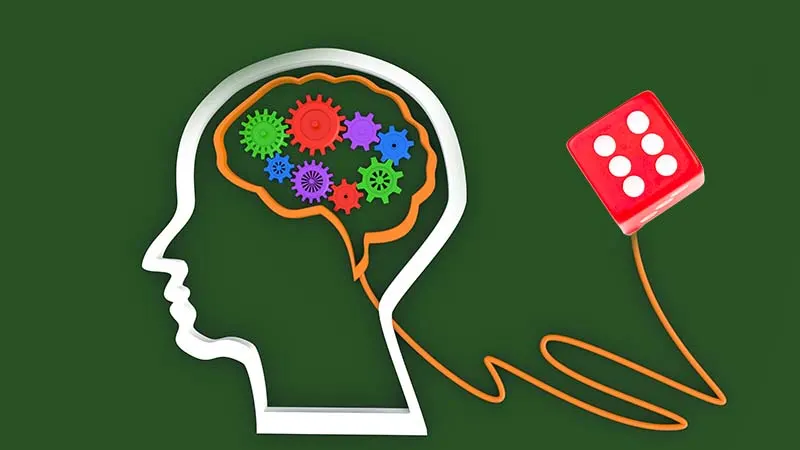Many players fail to distinguish between sports betting and casino games, often treating them as identical forms of gambling. However, understanding the fundamental differences between these two activities is crucial for making informed decisions and managing risks effectively. This comprehensive 82 Lottery analysis explores the distinct logic, psychology, and strategies involved in each form of gambling, helping players choose the most suitable option while maintaining responsible gaming practices.
The Fundamental Nature and Logic of Each Gambling Form
Sports Betting: Data-Driven Decision Making
Sports betting operates on a foundation of available information and statistical analysis. Unlike pure games of chance, sports betting allows players to make informed decisions based on:
- Team formations and player statistics: Historical performance data, injury reports, and current form
- Head-to-head records: Previous encounters between teams or players
- Environmental factors: Weather conditions, home advantage, and venue-specific performance
- Market movements: How odds change based on public sentiment and expert analysis
The key distinction lies in the ability to conduct research and apply knowledge to improve betting outcomes. While bookmakers maintain a house edge through odds adjustment, skilled bettors can potentially overcome this advantage through superior analysis and market understanding.
Casino Games: Pure Mathematical Probability
Casino games, including slots, baccarat, roulette, and most table games, operate on predetermined mathematical probabilities. These games are characterized by:
- Random Number Generators (RNG): Ensuring completely random outcomes that cannot be predicted
- Fixed house edges: Mathematical advantages that remain constant regardless of player skill
- No external factors: Results are independent of real-world events or data analysis
- Immediate outcomes: Quick resolution with instant gratification or disappointment

Psychological Differences Between Player Types
Sports Betting Psychology: The Analysis-Control Mindset
Sports bettors typically exhibit a psychological profile centered on perceived control and analytical thinking:
- Overconfidence Bias: Success in a few bets often leads to inflated confidence in predictive abilities. Players may increase stake sizes or take unnecessary risks based on past wins rather than objective analysis.
- Information Overload: The abundance of available data can create an illusion of certainty. Bettors may spend excessive time analyzing statistics without necessarily improving their success rate.
- Emotional Investment: Supporting favorite teams or players can cloud judgment, leading to biased betting decisions based on loyalty rather than objective assessment.
Casino Game Psychology: The Emotion-Luck Dynamic
Casino players operate under a different psychological framework:
- Immediate Gratification: The rapid pace of casino games provides instant feedback, creating intense emotional highs and lows that can be highly addictive.
- Near-Miss Effects: Almost winning (such as getting two out of three jackpot symbols) triggers the same reward pathways as actual wins, encouraging continued play.
- Illusion of Control: Despite games being purely random, players often develop superstitious behaviors or “systems” they believe influence outcomes.

Unique Psychological Traps and Biases
Sports Betting Specific Biases
- Confirmation Bias: Seeking information that supports predetermined opinions while ignoring contradictory evidence. This leads to poor bet selection based on wishful thinking rather than objective analysis.
- Sunk Cost Fallacy: Continuing to bet on losing streaks in an attempt to “break even,” often resulting in deeper losses. The belief that past losses must eventually be recovered through continued betting.
- Hot Hand Fallacy: Believing that recent wins indicate a “hot streak” that will continue, leading to increased bet sizes and risk-taking.
Casino-Specific Psychological Traps
- Loss Chasing: The tendency to increase bet sizes after losses in an attempt to quickly recover, often resulting in accelerated losses due to the fixed house edge.
- Gambler’s Fallacy: Believing that past results influence future outcomes in games of pure chance, such as thinking red is “due” after a series of black results in roulette.
- Anchoring Effect: Focusing on initial big wins and using them as reference points for future expectations, leading to unrealistic goals and continued play.
Bankroll Management and Expectation Setting
Sports Betting Capital Management
Effective sports betting requires disciplined bankroll management:
- Unit System: Betting a consistent percentage (typically 1-5%) of total bankroll per wager
- Long-term Perspective: Understanding that profits accumulate over many bets rather than individual big wins
- Research Investment: Allocating time for analysis and staying informed about relevant sports and markets
- Selective Betting: Waiting for genuinely advantageous opportunities rather than betting on every available event
Casino Game Capital Management
Casino play requires different financial strategies:
- Session Limits: Setting strict time and money limits for each gaming session
- Loss Limits: Predetermined maximum losses that trigger immediate cessation of play
- Win Goals: Establishing profit targets and having the discipline to stop when reached
- Entertainment Budget: Treating casino expenses as entertainment costs rather than investment opportunities
Image Caption: Bankroll management strategies comparison chart
Image Name: bankroll-management-strategies.jpg
Alt Text: Infographic showing different bankroll management approaches for sports betting versus casino games
Risk Assessment and Long-term Viability
Sports Betting Risk Profile
Sports betting offers theoretically better long-term prospects for skilled players:
- Skill Component: Knowledge and analysis can provide genuine advantages
- Market Inefficiencies: Opportunities exist where bookmaker odds don’t accurately reflect true probabilities
- Variance Management: Diversification across multiple sports and bet types can reduce overall risk
- Learning Curve: Improvement is possible through experience and study
However, the vast majority of sports bettors lose money long-term due to:
- Overestimating Abilities: Most players lack the discipline and skill necessary for consistent profits
- Emotional Betting: Allowing personal biases and emotions to influence decisions
- Poor Bankroll Management: Risking too much per bet or chasing losses
Casino Game Risk Assessment
Casino games present a different risk structure:
- Guaranteed House Edge: Mathematical certainty that the house will profit long-term
- No Skill Development: Improvement through practice is largely impossible
- High Variance: Significant short-term swings that can be emotionally challenging
- Rapid Loss Potential: Quick game resolution can lead to fast bankroll depletion
The appeal of casino games lies in their accessibility and potential for large immediate wins, but players must understand that consistent long-term profits are mathematically impossible.
Regulatory Considerations and Game Integrity
When engaging in either form of gambling, players should consider the legality of online casinos in their jurisdiction. Licensed operators ensure fair play through:
- Regular Audits: Third-party verification of Random Number Generators and payout percentages
- Player Protection: Responsible gambling tools and dispute resolution mechanisms
- Transparent Operations: Clear terms and conditions, especially regarding High RTP Games that offer better theoretical returns to players

Strategic Recommendations for Different Player Types
For Analytical Players
Those who enjoy research and analysis may find sports betting more engaging:
- Develop Expertise: Focus on specific sports or leagues to build deep knowledge
- Use Data Analytics: Employ statistical tools and models for decision-making
- Maintain Discipline: Stick to systematic approaches rather than emotional betting
- Track Performance: Keep detailed records to identify strengths and weaknesses
For Entertainment-Focused Players
Players seeking immediate entertainment may prefer casino games:
- Set Clear Limits: Establish firm boundaries for time and money spent
- Choose Games Wisely: Select games with lower house edges and better odds
- Avoid Chasing Losses: Accept losses as the cost of entertainment
- Take Regular Breaks: Prevent extended sessions that can lead to poor decisions
Technology and Modern Gambling Evolution
The digital age has transformed both sports betting and casino online:
- Live Betting: Real-time wagering during sports events adds new dimensions to sports betting strategy and risk management.
- Mobile Gaming: Smartphones have made both activities more accessible, requiring enhanced self-control and awareness.
- Data Analytics: Advanced statistics and machine learning are changing how professional sports bettors approach their craft.
- Virtual Reality: Emerging technologies are creating more immersive casino experiences that may intensify psychological effects.

Making Informed Gambling Decisions
The most significant difference between sports betting and casino games lies in the role of skill versus pure chance. Sports betting incorporates elements of analysis and knowledge that can theoretically provide advantages, while casino games rely entirely on luck and mathematical probability.
However, both forms of gambling carry inherent risks and house edges that favor operators. The key to responsible gambling lies in understanding these differences, setting realistic expectations, and maintaining strict financial discipline regardless of the chosen activity.
Success in either domain requires honest self-assessment of motivations, skills, and risk tolerance. Players should never view gambling as a reliable income source and should always gamble only with money they can afford to lose completely.
Whether choosing sports betting or casino games, the fundamental principle remains the same: approach gambling as entertainment rather than investment, maintain control over spending and time, and seek help if gambling begins to negatively impact other areas of life.
By understanding the distinct psychological and logical frameworks underlying each form of gambling, players can make more informed decisions and develop more effective strategies for responsible gaming. The goal should always be sustainable entertainment rather than unrealistic profit expectations, regardless of whether one chooses the analytical challenges of sports betting or the immediate thrills of casino gaming.


